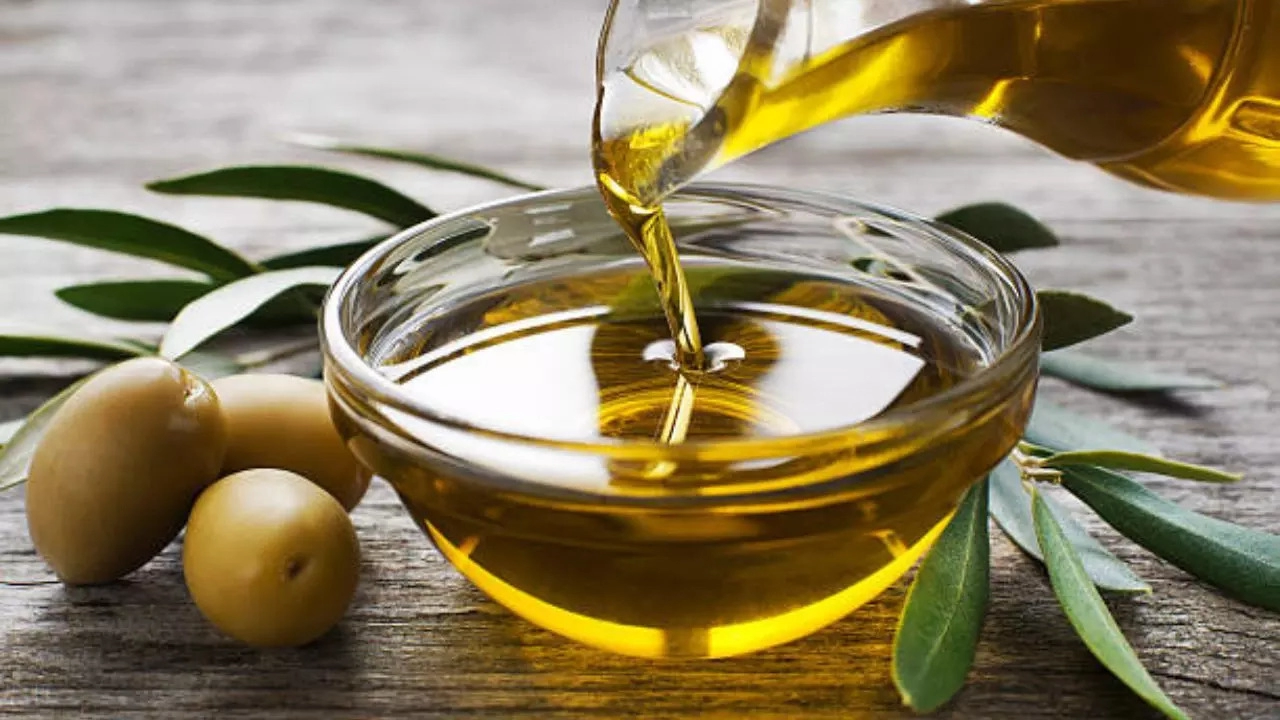Ashima Sharda Mahindra • 09 Sep 2024
What Happens If You Eat Olive Oil Every Day? Know The Dangerous Side Effects And Easy Ways To Reduce Them

Experts say most olive oil brands are either refined or partially hydrogenated under high pressure and heat, which alters the s molecular structure
Olive oil is said to be among the healthiest oils which boasts anti-inflammatory and antioxidant properties and helps protect against certain chronic diseases. According to experts, olive oil soothes your stomach and even aids weight loss. However, despite being rich in unsaturated fatty acids and loaded with important fat-soluble vitamins like vitamins D, A, and E, using it every day can have detrimental effects.
What are the side effects of having olive oil daily?
While it is considered healthy, every coin has two sides. While moderation is the key, eating too much olive oil can have adverse effects on how your body metabolizes fats. Experts say olive oil may also not be as good for your cardiac health as you believe or have read in several publications over the internet.
A few downsides include:
Heart issues
Contrary to what is believed, using too much olive oil regularly is not good for your health. Nutritionists say most olive oil brands available in the market today are either refined or partially hydrogenated under high pressure and heat, which alters the s molecular structure and lowers the amounts of Omega-3 fatty acids contained in olive fruits.
Also, including much olive oil in your diet reduces good cholesterol levels in your body and spikes bad cholesterol simultaneously. Such an elevation in LDL may increase your risk of heart disease in the long run.
Significant drop in blood pressure
According to doctors, too much olive oil consumption can also bring your blood sugar to dangerously low levels. Olive oil leads to increased insulin resistance in your body, thereby dropping blood glucose levels.
Consuming too much olive oil is bad and puts you at a greater risk of suffering severe complications like hypoglycemia, sweating, and weakness.
Acne and pimples
Even though olive oil is loaded with vitamin E, antioxidants, and healthy fats that protect, hydrate, and rejuvenate your skin – excess consumption can block pores and lead to outbreaks.
Doctors say if you are using olive oil on your skin, only apply a thin layer to your skin so that it does not attract dust, debris, and sebum – all of which cause acne and pimples.
Weight gain
Olive oil is extremely high in calories - 120 calories per tablespoon (15 ml) and according to experts, consuming more calories than you burn leads to weight gain. Studies also say increased MUFA intake increases body weight, suggesting that olive oil could contribute to weight gain if consumed in excess.
Increase in inflammation
Olive oil is packed with oleic acid – which speeds the release of lipopolysaccharides from your gut into the bloodstream. In excess, the elevation in the number of LPS in the bloodstream makes your immune cells cause more inflammation in the body.
Experts also say olive oil levels up markers such as inflammatory cytokines, linked with chronic inflammation.
How do you reduce the negative effects of olive oil?
Apart from including a moderate quantity of olive oil in your daily diet, you can:
- Focus on the quality of oil when you buy and make sure it is unrefined.
- Always be mindful of individual sensitivities, even though olive oil is well-tolerated by most people.
- Always use oil in small amounts to avoid excess calorie intake.
- Make sure to drizzle a few drops of olive oil over salads or use it to sauté veggies to get the most of its health benefits and avoid complications
Get Latest News Live on Times Now along with Breaking News and Top Headlines from Diet, Health and around the world.